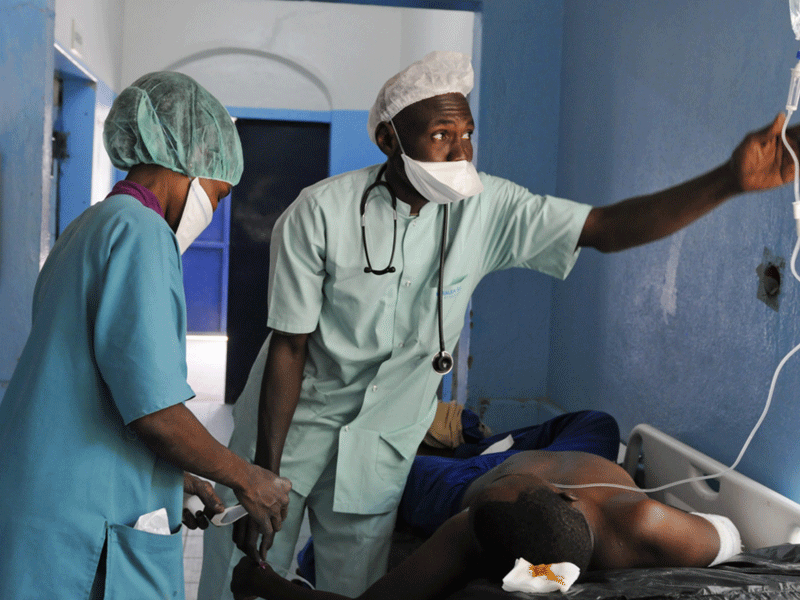The Healthcare Crisis: Access to affordable healthcare in developing nations

- 253
- 0
Introduction
Access to healthcare is a fundamental human right, yet it remains a significant challenge in many developing nations. The healthcare crisis in these countries is multifaceted, encompassing issues of affordability, availability, and quality of care. In this article, we will delve into the critical issue of access to affordable healthcare in developing nations, exploring the root causes, consequences, and potential solutions.
The Cost Barrier
One of the primary obstacles to accessing healthcare in developing nations is the high cost of medical services. Many individuals and families simply cannot afford the expenses associated with medical treatment, medications, or preventive care. This leads to delayed or forgone medical attention, resulting in worsened health conditions and, in some cases, preventable deaths.
The Vicious Cycle
The lack of access to affordable healthcare perpetuates a vicious cycle of poverty and ill health. When individuals cannot access timely and adequate healthcare, their productivity and ability to work are compromised. This, in turn, affects their income and economic stability, further exacerbating their inability to afford healthcare.
Rural-Urban Disparities
Access to healthcare in developing nations is often disproportionately distributed, with urban areas benefiting from better healthcare infrastructure and services. Rural populations, on the other hand, face significant challenges in accessing even basic healthcare. The lack of healthcare facilities and qualified medical professionals in rural areas forces many to travel long distances for care, incurring additional costs and time constraints.
Inadequate Health Insurance
Health insurance coverage is limited in many developing nations, leaving a significant portion of the population without financial protection against medical expenses. Those who do have insurance may find that it covers only a fraction of their healthcare costs, leaving them burdened with out-of-pocket expenses.
Impact on Maternal and Child Health
The healthcare crisis in developing nations has a particularly devastating impact on maternal and child health. Limited access to prenatal care, skilled birth attendants, and neonatal care services contributes to high maternal and infant mortality rates. Many lives could be saved through improved access to affordable maternal and child healthcare services.
Potential Solutions
Universal Health Coverage (UHC): Governments in developing nations can take steps to implement UHC, which ensures that all citizens have access to essential healthcare services without suffering financial hardship. UHC can significantly reduce the cost barrier to healthcare.
Investment in Healthcare Infrastructure: Developing nations should invest in building and upgrading healthcare infrastructure, particularly in underserved rural areas. This includes the construction of hospitals, clinics, and the training of healthcare professionals.
Public-Private Partnerships: Collaborations between the public and private sectors can help bridge gaps in healthcare access. Private healthcare providers can extend services to underserved areas through government incentives.
Community Health Workers: Utilizing community health workers and outreach programs can help deliver essential healthcare services to remote and vulnerable populations.
Preventive Healthcare: Promoting preventive healthcare measures and education can reduce the burden of diseases and the need for costly medical interventions.
Conclusion
Access to affordable healthcare in developing nations is a pressing global issue with far-reaching consequences. It is a matter of social justice and human rights to ensure that everyone, regardless of their economic status, has access to quality healthcare services. Addressing this crisis requires collaborative efforts from governments, international organizations, and civil society to implement comprehensive healthcare reforms that prioritize affordability, availability, and quality of care. By working together, we can make progress towards a world where healthcare is truly accessible to all.
Published in The Daily National Courier, October, 04 2023
Like Business on Facebook, follow @DailyNCourier on Twitter to stay informed and join in the conversation.

















































